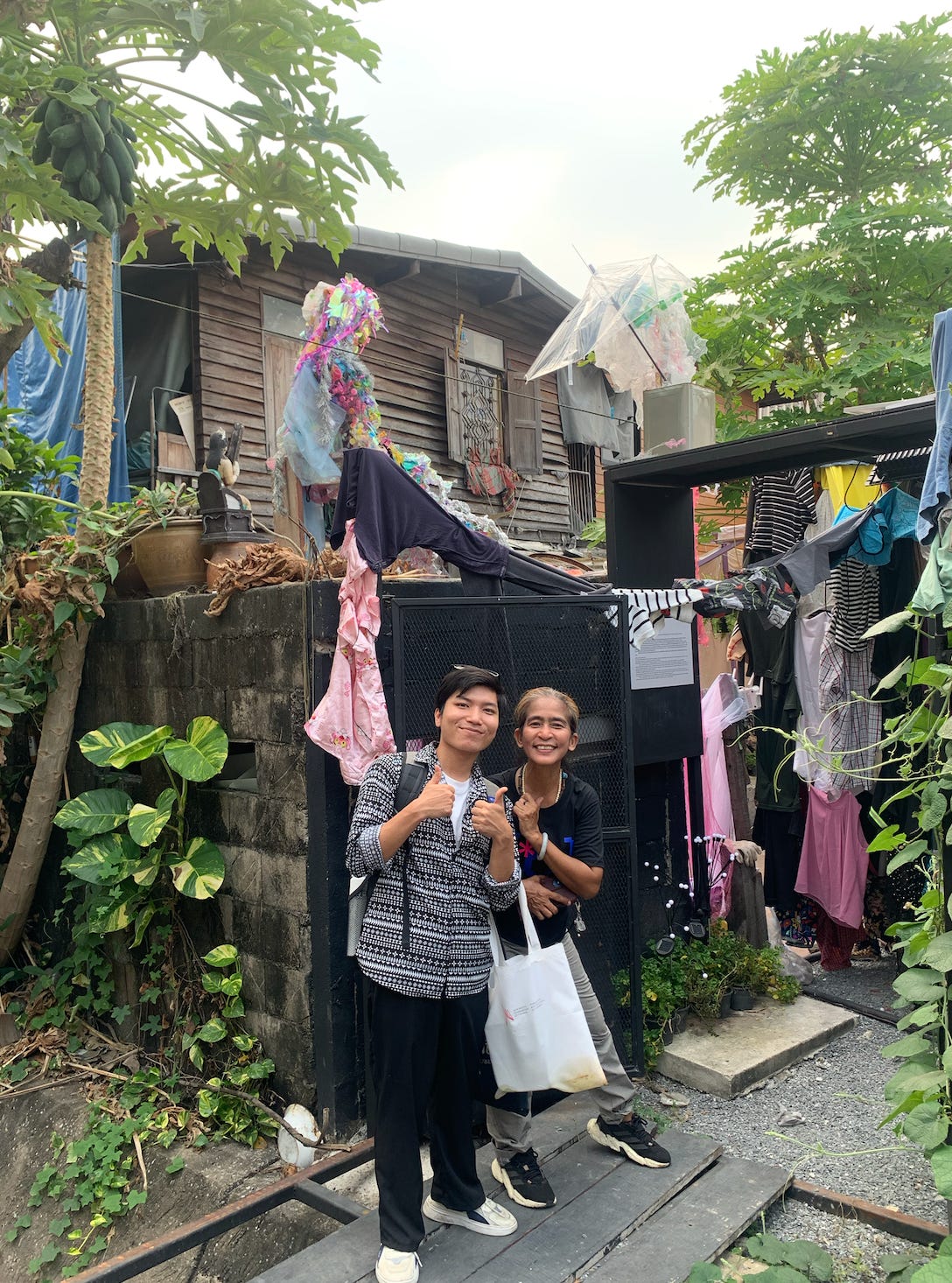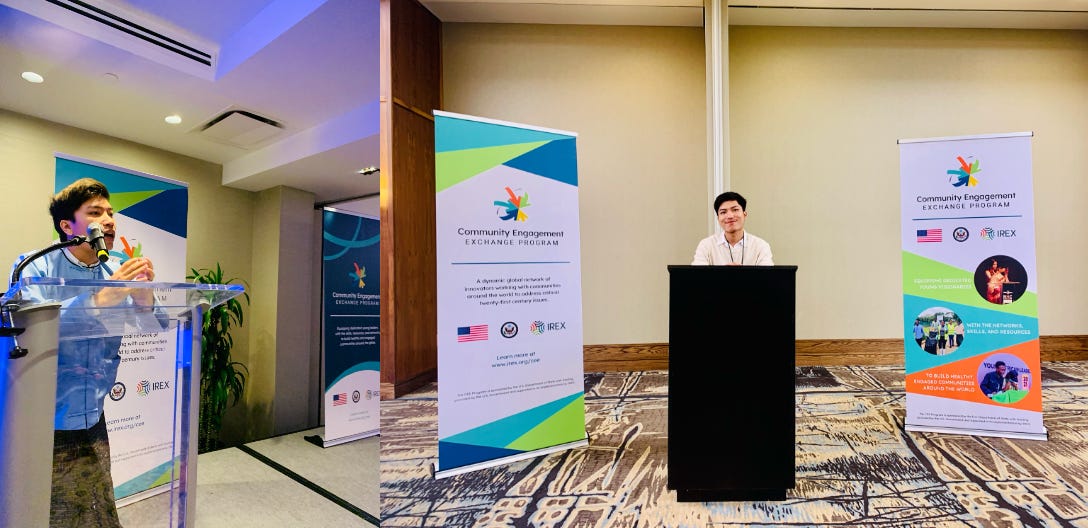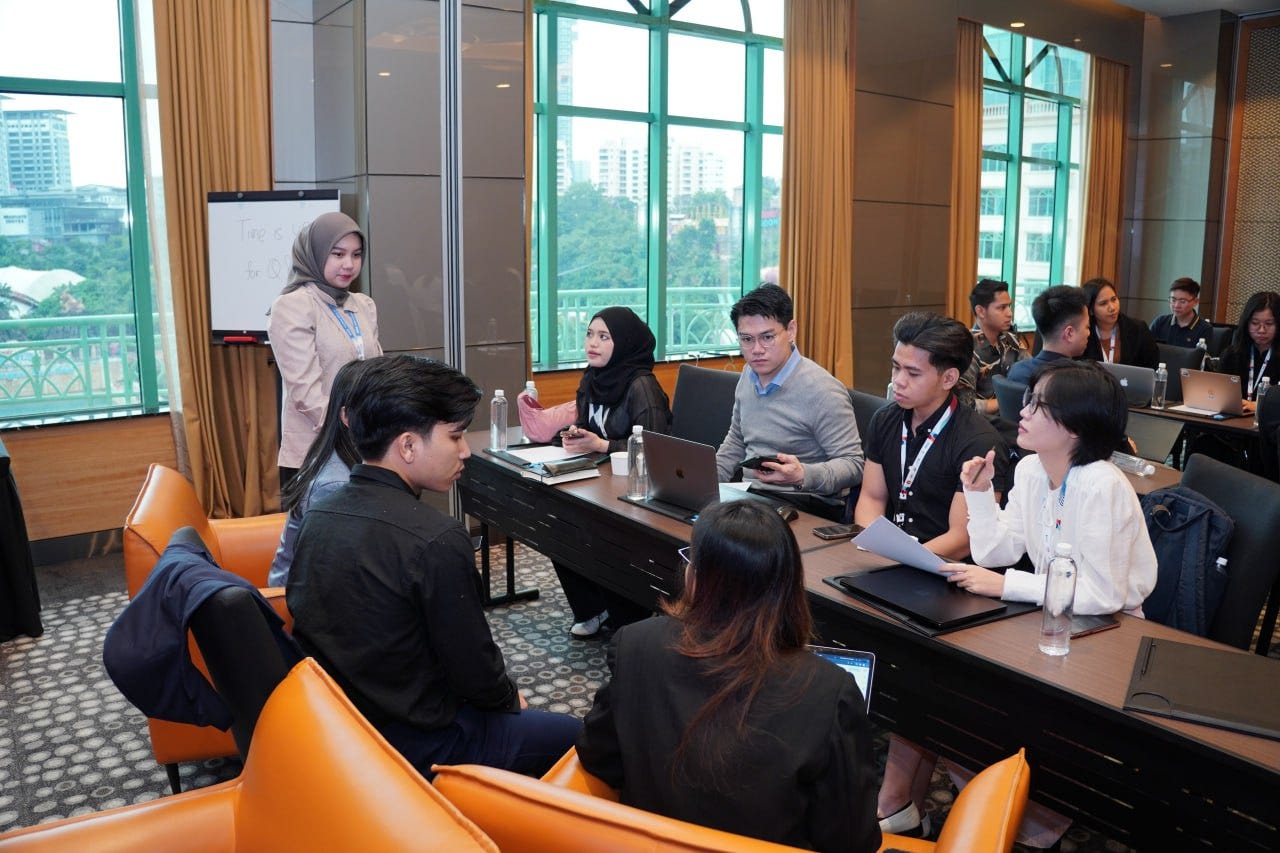#16: Forging a new future
William’s journey to creating new opportunities for Burmese youths and charting his future from crises.
Welcome to this week’s edition of SEAmplified! Your latest insights on Southeast Asian youth and youth politics in 5.8 minutes.
We apologise for not pushing out any updates last week. Stories don’t always work out the way we want them to, and we strive not to compromise quality for the sake of meeting deadlines. That said, we’re trying our best to stay on track.
⌛This week in brief:
📌 How did this Burmese youth turn crises into opportunities for himself and fellow youths?William Bawi Hein has a knack for turning crisis into opportunity.
Jobless after Myanmar’s 2021 coup, he sought new prospects abroad. Armed with newfound insights, he then founded Youth InnoLab Myanmar, an organization dedicated to unlocking higher education for his peers. To date, the organization has helped more than 100 Burmese youths to study or gain employment opportunities in Korea, Malaysia, the Philippines, Singapore, Thailand, and the United States.
A younger William would not have envisioned himself doing so. Life was as good as getting a job and retiring in old age - the predominant mindset in his hometown of Chin State.
It was his early exposure to crises that set William on a journey to find opportunities for himself. The lessons he picked up along the way enabled him to not only chart his own path forward, but also extend a helping hand to fellow Burmese youths.
What were the crises that the 24-year-old has faced so far, and how did he turn them into opportunities for himself and the youths in Myanmar? Read on to find out more.
All images courtesy of William Bawi Hein.
A simple life amid early struggles
I grew up in a village in Chin State in western Myanmar, which is one of the poorest regions in the country.
My father, a farmer, was the sole breadwinner of the family. When we moved to Yangon later to secure a better education, my family only had about US$150 among us.
On better days, the family got to share some rice and soup, or I’d just share a meal together with my mother. But there are days when we don’t even have a meal.
As we had no financial means to own an apartment, we could only rent a place to stay in. The landlords would chase us away after some time, and we had to find another place to stay. This happened repeatedly from high school to university.
I always wondered, why did this happen to me? I felt lost, and constantly questioned what I was to make out of life.
That sinking feeling was partly because some choices that I made were inauthentic. Pursuing chemistry in university, for example, was not out of personal interest, but of pragmatism.
During my time at university, I also decided to switch from full-time studies to a part-time arrangement. I would attend lessons on weekends, and work weekdays at a Vietnamese tech company that was operating in Myanmar.
And that was pretty much it. As in life-wise, really. To graduate from university, earn a decent wage of US$200 to US$300 a month, and retire when it’s time. It’s what most people in my village would do, and frankly, it was also the path I aspired to follow.
One side effect? There was also nobody in the village that I could seek advice from. Nobody went into aerospace engineering or medical school, let alone becoming an entrepreneur after graduation.
Creating opportunities while continuing a legacy
In 2021, the coup happened when I was in my final year of university. It happened out of nowhere, and I had never imagined that we would be sacrificing our life and future. The Vietnamese company I worked for pulled out of Myanmar, and I also had to stop my university education. It was depressing.
However, I have been volunteering in a few community organizations, and the coup made me realize that I need to give back to my community by starting a platform for youths.
The question was: how can I get the community to recognize and trust me?
I sought inspiration from my maternal grandparents, who were relatively well-known in Chin State. My grandfather was a school principal who fought for youth education rights, while my grandmother was a public health advocate for young women.
I wanted to continue their legacy and spirit for community service, because people knew who my grandparents were, and get people to know me in the process. This motivated me to start Youth InnoLab Myanmar (YIM), initially as a project to help Myanmar youths secure study or job opportunities overseas through partnerships with foreign universities and companies.
With this project in mind, I applied to as many youth development programs as possible in India, Indonesia, Malaysia, the Philippines, Thailand, and the U.S., because this was the best way to learn the skills needed to help my community.
I was selected for six programs, but the highlight was the Community Engagement Exchange Program that was held in the U.S. During the program, I interned with a non-governmental organization that provides education services to youths in Central Alabama. I learned a lot of skills like writing grant proposals, marketing, and managing programs.
My previous experience in Teach for ASEAN, a social enterprise that taught the Burmese language to foreigners, also inspired me to learn more about social entrepreneurship.
So I applied to five universities before the exchange program and received scholarships for all of them. Pursuing global studies and social entrepreneurship at Thailand’s Thammasat University easily won me over, since it aligned best with my goals.
Charting a future path
In February this year, a conscription law was suddenly announced in Myanmar. It was devastating because the junta could call anyone eligible up for military service, which puts us at risk of losing our future.
The fear of losing our future has compelled more youths to try to get a job overseas. However, many of them have no idea on what they actually want to do, and they are not even getting a proper job. The future becomes unpredictable for them, as they do not know what will happen next.
Many would hope to return to Myanmar one day, as it is our home country, it’s where we belong. Perhaps when the coup is over, everyone will want to return home.
But with the conscription law now in place, returning home is not an option for me. Instead, I have been inspired by my seniors who went on to Harvard and Oxford, and I want to follow in their footsteps to gain more knowledge needed to help my peers.
The diverse perspectives that I gained from the Vietnamese tech company, the exchange program in the US, and Thammasat University got me interested in working with people across the world. I prefer to work with international organizations because the lessons that I can get to learn are very different from working in a local company. For example, I won’t be able to learn how to use AI at work in Myanmar, because most youths only learned how to use a computer in university. I also think that we need to step out of our comfort zone and embrace the unknown, and that’s probably the reason why I would not want to return.
Regardless of our background or path in life, it is my hope that Myanmar can become a society where all youths can come together and work together without oppression and discrimination. I dream that all youths can share a common vision to make Myanmar more developed and prosperous.
Know a Southeast Asian youth who’s working, studying, or living in another Southeast Asian country, or are you doing so and would like to share your story? Email the editors at tanzhantiam@gmail.com or tianwen.tay@seakoel.com
If you enjoyed today’s article, follow SEAmplified on Instagram and LinkedIn, hit the subscribe button below, or email the editors if you have any feedback for us!






